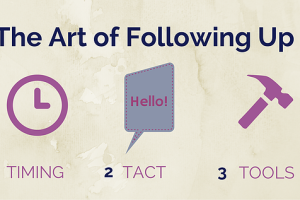Social proof – heard of it?
The power of persuasion… When it comes to marketing, online and otherwise, it’s very true that many methods of doing so and gaining new customers in the process have been heavily exhausted.
We all know that advertisements are everywhere these days, no matter where you go or where you look. Advertising is probably the oldest marketing strategy in existence, and its use has become so widespread today that many people do not even pay attention to them anymore. To get around this, advertisers have attempted developing newer and more interactive forms of advertising to engage consumers and increase the likelihood that they will try their product or service.
Many marketers are seeking new ways to incorporate non-abused strategies into their advertising in order to stand out from the competition and hopefully profit from that.
One of these strategies that have not gained a lot of attention is the concept of social proof within advertising.
What does social proof really mean though?
Social proof, the positive influence bestowed upon one by others engaging in any sort of activity, is what more marketers need to focus on in order to draw more customers in at a time when doing so is at its hardest, thanks to a destroyed (but slowly recovering) economy.
Social proof is so effective in drawing people’s attention because it is easy to become influenced into something that has the interests of your friends, family and other people around you. People surprisingly value the opinions and interests of others quite highly when making their own choices regarding anything from movies to food. While it is simple to grasp that once you’ve drawn a few people in, more will follow, it gets a bit more complex than that.
Social proof has contributed to the success of many online businesses through a number of different ways. One of the most popular is through the use of invite-only web sites that work to intrigue someone into wanting to try whatever said web site has to offer. Examples of online products and services that have used this method of social proof and gained success from it include Google’s Gmail and Turntable.fm.
History Lesson!
You’ve almost certainly heard of Gmail before, and likely even use it on a daily basis for your own personal or business email. What some more recent adopters of the email service provider don’t know is that Gmail was once an invite-only service before finally opening its doors to everyone in 2007 (2006 in three countries: Australia, New Zealand and Japan).
Since Gmail first launched on April 1st, 2004, Gmail had been in an invite-only beta phase for three whole years, and in this time period, the email service provider gained a lot of attention from the media and consumers around the world. Gmail is now one of the most popular and widely used email service provider in the world, and its owner (Google, of course) continues to grow substantially thanks to Gmail and the company’s many other offerings.
Another less popular web site that has seen a lot of success thanks to social proof through allowing registrations via invitations only is Turntable.fm. Currently a U.S.-only service (due to licensing constraints), Turntable.fm allows users to listen to music with each other and also gives them the opportunity to DJ and control the music that plays. While still not incredibly popular, Turntable.fm owes a lot of its success to gaining hype as an invite-only service. As soon as Turntable.fm launched last year, invitations were given out to some journalists working for popular blogs. Favorable reviews from these journalists caused an influx of interested consumers attempting to register for an invitation to try the service out themselves. This led to slow but dramatic expansion over time, and sparked the development of an iPhone app among other things for Turntable.fm users.
While Turntable.fm faces licensing constraints that prevent international expansion, at least the service is growing within the United States, and will possibly get around that limitation in the future as many other similar services such as Pandora (Internet radio) hope to accomplish. Unfortunately, not even social proof can get Turntable.fm into the hands of people in foreign countries thanks to the U.S.’s insanely strict copyright laws, which may turn them away for now but could have them coming back one day. It is strange (and sad) that services such as Turntable.fm, Pandora, and others like them don’t seem to push hard enough to be able to make their content accessible worldwide. It seems very counter-productive to turn away potential users around the world, and potentially profit off them through advertising and other means.
History lesson over
So how does social proof really come into play in these scenarios and in so many others?
How does so social proof work as an effective marketing strategy for gaining new customers?
In terms of the invite-only services like Gmail and Turntable.fm, social proof drives the development of hype towards these services. First the media gains access, then your friends/family/coworkers/etc. gain access, and then that will have you wanting access as well, even if it’s something that you normally wouldn’t be very interested in. The fact of the matter is that seeing the people around you so interested in something will gain your interest as well.
The effectiveness of social proof goes far beyond simple advertising.
An advertisement simply introduces a product or service and details what it will provide you, without giving access to feedback from actual people who have had the chance to use said product or service.
With so many competing products and services available on the market, people don’t usually just blindly trust any advertised products/services without hearing at least some good feedback on them. This is where social proof comes into play, and enhances advertisements by providing them with a backbone of users that will positively influence others into trying the product or service being advertised.
Social proof can come in a variety of different forms.
Most commonly, it comes through the media and an individual’s friends and family members. Journalists are given access to the product/service and are given the opportunity to review it and throw in their feedback, which then gains the attention of readers/viewers. Friends and family members are constant conveyers of social proof, as they are most likely to try new things and lay their feedback on you.
Celebrities can also take part in social proof, as the general public is generally more trusting of celebrities than the average person with little to no credibility. Celebrities usually contribute in visual media such as T.V. commercials, although they sometimes express their support for particular products/services online as well. Turntable.fm managed to generate some more interest in its web site after having celebrities Sir-Mix-A-Lot and Diplo DJ on the site.
As you can imagine, a move like this caused Turntable.fm’s active user base to explode (although, of course, with U.S. traffic only).
Lastly, probably the least effective form of social proof comes from the feedback and opinions of other people. While we sometimes read random user reviews on movies, certain products, etc. when we cannot find feedback from any other sources, people we do not know are often seen as the least trustworthy. Having a mass amount of people supporting a certain product/service, however, will obviously increase the power of this social proof and its influence on potential customers.
The best way for a marketer to make good use out of social proof however is…
To incorporate various different types into they’re advertising and general marketing tactics. This will ensure maximum exposure and certainly maximum profits in turn.
The more people that you have out there promoting your products to their friends or even just random people on the Internet, the better for you and whatever you’re selling. You don’t want to strictly focus on just promoting your product or service with a single celebrity, for example. Sure, that celebrity will likely bring in a bit of hype, but making sure that others are given the chance to promote your product/service will bring in the real numbers in terms of customers.
Of course, social proof will never work if you don’t already have a product or service that is worth selling. Although, you don’t necessarily have to be selling something to apply the concept of social proof; Google’s Gmail, for example, is a completely free service that used social proof to gain more users.
While Google didn’t profit from sales, they certainly did from advertising, which is featured in most free online services in order to earn the webmasters a return on their investments. Regardless, you can’t expect to gain good feedback on a product or service that is not deserving of such feedback. That’s why you must ensure that you have a truly worthy product or service that you think can gain some interest if it can get some promotion through social proof.
Once you have the perfect product/service that you know will sell, that’s when it’s time to head into this territory and start spreading it in hopes that others will like it and do the same, until it spreads to the point that you have gained a large amount of customers from the effort (critical mass).
Marketers in every field need to embrace social proof and reap the real benefits that are there in using it. Social proof is still extremely underused, but it is gaining popularity as the mainstream media and advertisers/marketers are starting to catch on to its effectiveness in attracting the attention of the general public. Making use of it now before it gets more abused in the future will surely help your business and gain you some hopefully loyal customers that will








